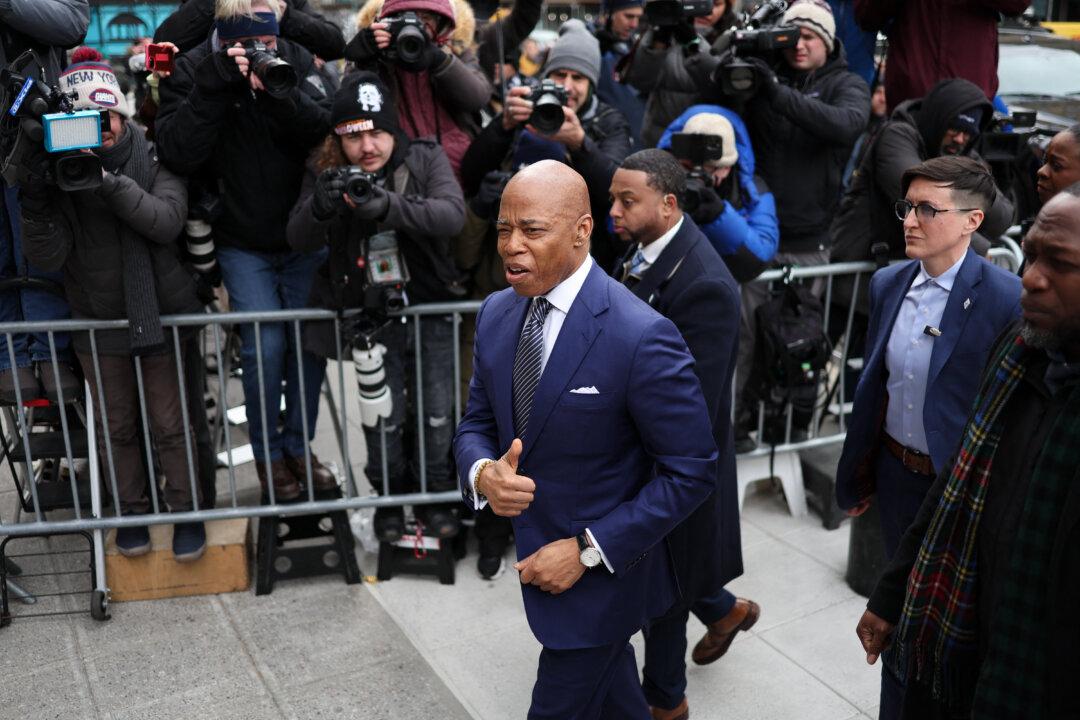The United States and Britain are concerned about the makeup of the newly formed Taliban government in Afghanistan, while some other countries have expressed support for the interim ruling structure.
On Sept. 7, the Taliban named Mullah Mohammad Hassan Akhund, a longtime top Taliban official, as Afghanistan’s interim prime minister, and Taliban co-founder Mullah Abdul Ghani Baradar as his second-in-command.
Other top officials include Sirajuddin Haqqani, a member of the Taliban affiliate Haqqani network, and Mohammad Yaqoob, son of one of the founders of the Taliban.
“We note the announced list of names consists exclusively of individuals who are members of the Taliban or their close associates and no women. We also are concerned by the affiliations and track records of some of the individuals,” a spokesperson for the U.S. State Department said in a statement.
“We understand that the Taliban has presented this as a caretaker cabinet. However, we will judge the Taliban by its actions, not words.”
The UK echoed U.S. concerns about the new government.
“We would want to see, in any situation, a diverse group in leadership which seeks to address the pledges that the Taliban themselves have set out, and that’s not what we have seen,” a spokesman for UK Prime Minister Boris Johnson said. “We will continue to judge the Taliban on their actions.”
Under the previous era of Taliban rule, women’s rights were strictly curtailed. In public, they were forced to wear burqas, which cover the whole body except the eyes.
“Upon initial analysis of the names announced, it does not look like the inclusive and representative formation in terms of the rich ethnic and religious diversity of Afghanistan we hoped to see and that the Taliban were promising over the past weeks,” a spokesperson for the EU said in a statement to media outlets.
“We are looking very, very carefully at how the new government is behaving before engaging,” European Commission Vice President Maros Sefcovic told reporters in Brussels.
A U.N. spokesman, while acknowledging that the organization doesn’t recognize governments, told reporters in New York, regarding the announcement, that “only a negotiated and inclusive settlement will bring sustainable peace to Afghanistan.”
Maas was speaking in Berlin before meeting with U.S. Secretary of State Antony Blinken.

Some other world leaders remained neutral, while others expressed support.
“It is difficult to predict how long this interim government will continue. All we have to do is to follow this process carefully. I wish the best for all Afghanistan,” Recep Tayyip Erdogan, the Turkish president, told reporters in Ankara.
“While closely monitoring the actions of the Taliban, Japan will continue to cooperate with the United States and other related countries,” Japan’s Chief Cabinet Secretary Katsunobu Kato said during a news conference in Tokyo.
Kato said a representative in Doha, Qatar, would conduct meetings with Taliban officials.
Qatar’s Assistant Foreign Minister, Lolwah Alkhater, told AFP that the Taliban has shown “a great deal of pragmatism.”
“Let’s seize the opportunities there ... and look at their public actions,” she said. “They are the de facto rulers, no question about that.”
Pakistan Foreign Minister Shah Mehmood Qureshi, speaking at a virtual conference that brought together neighbors Pakistan, China, Tajikistan, Uzbekistan, Iran, and Turkmenistan to discuss Afghan strategy, floated the idea of inviting the new rulers in Kabul to future gatherings.
“Participation of Afghanistan will augment this forum’s effectiveness in pursuing our shared objectives for lasting peace and stability in Afghanistan,” he said.
Wang Wenbin, a spokesman for the Chinese Foreign Ministry, told reporters in Beijing that the Chinese embassy in Afghanistan is functioning normally and that Chinese officials are “ready to maintain communication with the new Afghan government and its leaders.”
“We hope that the new Afghan government will listen to the views of all ethnic groups and factions and work in concert with the aspirations of its people and the expectations of the international community. We have noted that the Taliban has stressed that all people will benefit from the new regime,” he said.





